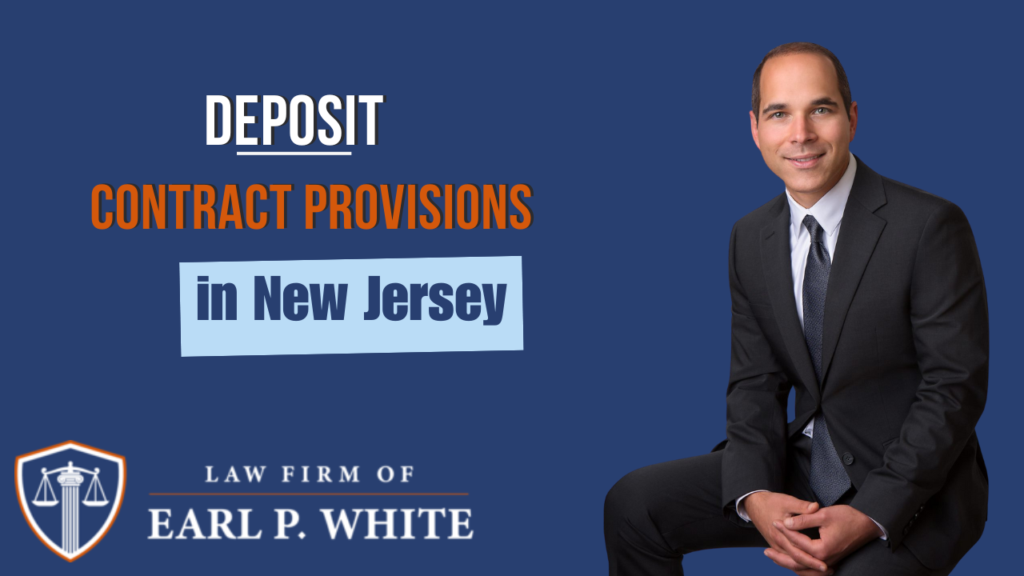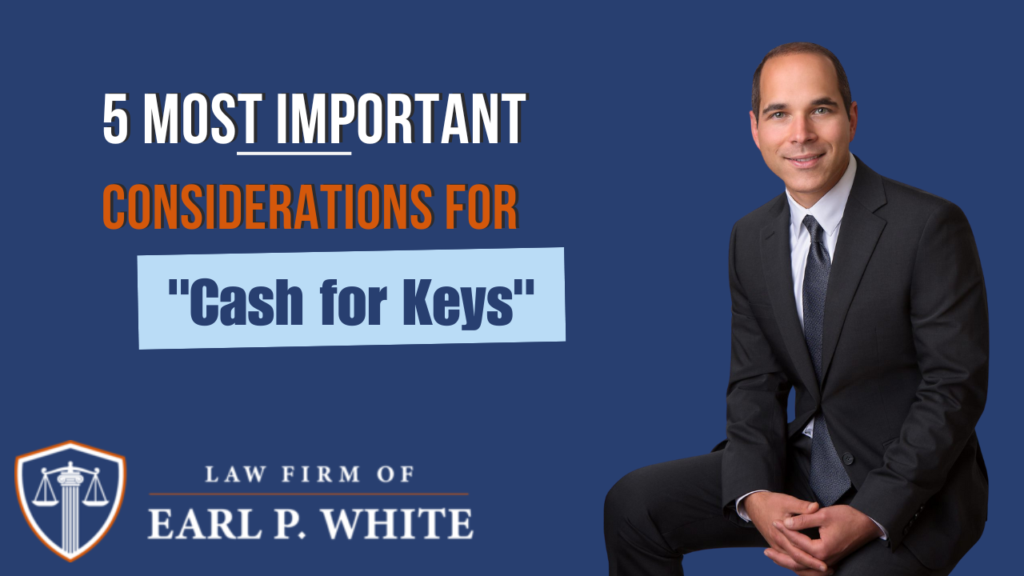Deeds transfer ownership in real property from the grantor to the grantee in New Jersey.
For example, a seller (grantor) uses a deed to transfer ownership to the buyer (grantee). Parents (grantor) often freely transfer to their children (grantee).
Deeds are characterized by “guarantees” the grantor makes about their interest in the property, and “promises” of future action the grantor will take if their representations are challenged. These guarantees and promises are called covenants.
This entry discusses types of deeds in New Jersey and their corresponding covenants.
Covenants
Types of Covenants
Covenants are “promises” or “guarantees” from the grantor written into the deed. Covenants are the defining feature of each type of deed.
Seller often guarantee a property is sold free and clear of mortgages and liens, and that the seller has authority to make the sale.
Present covenants apply to guarantees at the time of the transfer, and future covenants address a grantor’s promises to resolve title issues in the future. Covenants often run to a grantor and grantee’s heirs and successors.
Covenants in New Jersey include:
- Covenant Against Grantor’s Acts. Grantor themselves have no taken any action to “cloud” or encumber title. N.J.S.A. 46:4-6.
- Covenant of Seizin. Grantor has an “absolute and indefeasible estate” at the time of transfer to the grantee. N.J.S.A. 46:4-3.
- Covenant of Right to Convey. Grantor has “good right, full power and absolute authority” to transfer title in the way intended by the deed. N.J.S.A. 46:4-4.
- Covenant of Freedom of Encumbrances. The property conveyed is free and clear of all former mortgages, judgments, executions, and all other encumbrances. N.J.S.A. 46:4-5.
- Covenant of General Warranty. Grantor promises to “forever warrant and defend the property transferred against all claims” to the grantee and grantee’s heirs, representatives, and assigns. See N.J.S.A. 46:4-7.
- Covenant of Quiet Possession. Grantee and their heirs and assigns will have, hold, and possess the property without interruption or lawful claim against the grantee’s title. N.J.S.A. 46:4-5.
- Covenant of Further Assurances. Grantor will do acts or executed deeds after transfer necessary to assure the property is conveyed as intended in the deed. N.J.S.A. 46:4-10.
Estoppel By Deed (“After-Acquired Interest”)
Grantors sometimes transfer ownership with some kind of title defect, but after obtain more complete rights to the same property.
The law of estoppel by deed prevents a grantor from challenging his grantee’s title based on newly acquired rights, even if the grantor did not guarantee clear title at the time of transfer.
In other words, a grantor that purports to convey property to another may not later claim title to that property over the grantee.
The Appellate Division explained:
A grantor is generally estopped from denying the title of his grantee. And further, a grantor who executes a deed purporting to convey land to which he has no title, or to which he has a defective title at the time of the conveyance, will not be permitted, when he afterward acquires a good title to the land, to claim in opposition to his deed to the grantee.
Suburban Golf Club v. State Highway Comm’r, 222 A.2d 301, 309 (Super. Ct. 1966).
Grantees may also need to demonstrate they relied on the grantor’s transfer to their detriment to assert estoppel by deed. Shell Oil Co. v. Trailer & Truck Repair Co., 828 F.2d 205, 209 (3d Cir. 1987) (“New Jersey courts would follow those courts which hold that detrimental reliance is an element of estoppel by deed.”)
Covenant Violations
Where a grantor breaches his covenants, the grantee has the option of rescinding the transaction, or suing for money damages for breach or fraud. Andreychak v. Lent, 257 N.J. Super. 607 A.2d 1346, 1349 (Super. Ct. App. Div. 1992).
Chi. Title Ins. Co. v. Union Ave. Holding, LLC, No. A-5464-15T3 (Super. Ct. App. Div. Jan. 8, 2019) provides a cautionary tale.
In Chi. Title Ins. Co., a Union Ave Holdings sold an apartment building to Golden Union for $1.4 million via a bargain and sale deed with a covenant against grantor’s acts. The sale was contingent upon all liens being discharged. Union Ave Holdings falsely asserted an existing mortgage lien was discharged and even supplied a fraudulent discharge document. Union Ave Holdings was ordered to pay $1.3 million for damages common law fraud, fraudulent inducement, fraudulent misrepresentation, and breach of covenant
The trial court in Chi. Title Ins. Co. explained:
Under New Jersey Law, if a bargain and sale deed contains a warranty as to the grantor’s acts, and the subject property is encumbered as a result of actions taken by the grantor, then the grantor is liable to the grantee when the deed is given . . . In this case, the court finds that there is ample credible evidence to support Plaintiff’s claims based on the breach of the covenant in the warranty as Defendants conveyed title knowing the West 58th St. mortgage remained as an encumbrance on the property.
Chi. Title Ins. Co. v. Union Ave. Holding, LLC, No. A-5464-15T3 (Super. Ct. App. Div. Jan. 8, 2019)
Merger of the Deed
Purchase and sale contracts sometimes include covenants that are not written into the deed.
Under the doctrine of merger, the covenants related to title in an accepted deed supersede and replace covenants in the purchase and sale contract. Covenants not related to title, such as the warranty of habitability, continue on.
All warranties and representations made in connection with a sale, unless specifically reserved to hold over after the passage of title, are merged into the deed. The acceptance of a deed by the purchaser from the vendor terminates the contractual relationship between the parties, and their respective rights and liabilities are thereafter determined solely by the deed and not by the contract of sale.
ATIM Family P’ship v. LMW Props. Corp., No. A-5365-06T3 (Super. Ct. App. Div. Apr. 2, 2009)
Bargain and Sale Deed
A bargain and sale deed with Covenants as to Grantor’s Acts is the most common deed in New Jersey.
A bargain and sale deed conveys the entirety of the grantor’s interest at the time of transfer. Wildwood Crest v. Smith, 509 A.2d 252, 259 (Super. Ct. App. Div. 1986) (“A bargain and sale deed is a deed of conveyance without any covenants. It is a bare conveyance to the grantee of whatever interest the grantor has at the time of the conveyance.”)
As discussed, the Covenant Against Grantor’s Acts is a guarantee that the grantor did not take actions to negatively impact the grantee’s ownership rights.
Language of Creation. Language in a deed that creates a covenant against grantor’s actions is:
“The Grantor promises that the Grantor has not done any act or executed any deed, or allowed any act to be done or any deed to be executed by others, that changed, charged, altered, affected, defeated, or encumbered in title, estate, or otherwise the lands and premises conveyed, or intended to be conveyed, or any part of these lands and premises.” N.J.S.A. 46:4-6.
“Deed” means a written instrument entitled to be recorded in the office of a county recording officer which purports to convey or transfer title to a freehold interest in any lands, tenements or other realty in this State by way of grant or bargain and sale thereof from the named grantor to the named grantee.
Forms of Ownership. New Jersey recognizes multiple forms of ownership based on number of owners, marital relationships, use restrictions, and transfers upon death. Property may be owned as fee simple, tenants in common, joint tenants with the right of survivorship, or in a life estate. Learn more about types of ownership interests in New Jersey.
Quitclaim Deed
A quitclaim deed transfers whatever interest the grantor has in the property. The grantor makes no covenants, warranties, or promises as to their ownership.
See K. Woodmere Assocs., L.P. v. Menk Corp., 720 A.2d 386, 391 (Super. Ct. App. Div. 1998)(“A quitclaim deed contains no warranties of either title or land. Essentially, a quitclaim deed transfers ‘whatever interests I have, assuming I have any’ in the title. It is construed as a deed without covenants.”)
Quitclaim deeds are not used for traditional purchase and sales, but rather for transfers among family and related business entities, correcting errors, or to resolve a title issue such as eliminating a life estate. These deeds are normally for nominal consideration and not subject to realty transfer tax.
Language of Creation. Language in a deed that creates a covenant against grantor’s actions is:
“Grantor does remise, release, and forever quitclaim to the said Grantee all the right, title, interest, and claim which Grantor has in and to the property described herein. By this Quit Claim Deed, Grantor is simply transferring, conveying, and releasing to Grantee whatever interest, if any, that Grantor has in or concerning the property.”
Valid and Enforceable Deeds. New Jersey is a “race notice” state. Where parties having competing interests in property, the first to record their interest in the county records has priority. Statutes set out the rules requires for deeds to effectively transfer ownership. Learn about New Jersey’s law on valid and enforceable deeds.
General Warranty Deed
A general warranty deed gives a grantee complete protection in the future. The grantor includes each covenant discussed above.
See Spiegle v. Seaman, 390 A.2d 639, 644 (Super. Ct. App. Div. 1978) (“A full covenant warranty deed is one which contains covenants (1) of seizin, (2) of right to convey, (3) against encumbrances, (4) of further assurance, (5) of quiet enjoyment, and (6) of warranty.”)
Language of Creation. The language of creation for a general warranty deed includes:
“Grantor makes the following covenants with Grantee: (1) Grantor is lawfully seized of the property described in this deed; (2) Grantor has the right to convey the property described in this deed to Grantee; (3) the property is free from all former mortgages, judgments, executions, and all other encumbrances; (4) Grantor will warrant generally the property conveyed by this deed, so that Grantee will remain in peaceful ownership of the property; (5) Grantee shall have quiet possession of the property, and Grantee will not be disturbed in possession of or removed from the property by persons who have claims against the property; and (6) Grantor will execute any further assurances as may be reasonably required by Grantee, to correct any defect in the title.”
Special Warranty Deed
A special warranty deed provides that the grantor will warrant the title against claims by the grantor themselves.
In other words, the grantor promises to not make claim to the property in the future. The special warranty deed makes no promises as to third-parties. See Tunney v. Champion, 218 A.2d 899, 901 (Super. Ct. 1966) (“A special warranty does not warrant against all persons claiming the land, but only against those who should claim under the grantor.”)
Language of Creation. The following language is used to form a special warranty deed:
“Grantor hereby covenants that Grantor will warrant specially the Property hereby conveyed and Grantor further warrants that Grantor, Grantor’s heirs and personal representatives, will forever warrant and defend the property unto Grantee, Grantee’s heirs, personal representatives and assigns, against the claims and demands of Grantor and all persons claiming to claim by, through, or under the Grantor.“ N.J.S.A. 46:4-8.
Deed of Confirmation
A deed of confirmation validates an existing deed that has a legal deficiency. These deeds should describe the defect and how it is corrected.
Deeds of confirmation may be used to correct capacity issues, such as a grantor not yet being of legal age to execute a deed.
Confirmation deeds are also used when a corporation – which has ceased to exist – is the grantor on the face of a deed. In this situation, the beneficiary of the deed may file an action in superior court for a court order requiring a surviving officer of the defunct corporation to execute the confirmation deed. N.J.S.A. 46:7-1.
Deed of Correction
A deed of correction fixes a clerical or simple mistake, such as a misspelled name or property address, or accidental language. These deeds should describe the error and how it is corrected.
Deed of Dedication
A dedication is the donation of real property to a government for public use.
Dedications may be accomplished by any unequivocal act manifesting the grantor’s intention. See George Van Tassel’s Cmty. Funeral Home, Inc. v. Bloomfield, 73 A.2d 636, 638 (Super. Ct. 1950).
Although a deed is not required, a deed of dedication provides clarity. The “grantee” in the deed is the benefiting government body and the words “for public use” are typically included.
Dedications remain in effect forever until there is an affirmative act of rejection by legislation action. The power to accept the dedication remains with public authorities until they reject or vacate the dedicated land by official action. See Borough of Milford v. Arnold, 887 A.2d 738 (Super. Ct. 2005).
Deed in Lieu of Foreclosure
Deeds in lieu of foreclosure are established by The Fair Foreclosure Act in New Jersey. These deeds are an alternative to the traditional foreclosure process.
A deed in lieu of foreclosure means a “voluntary, knowing and uncoerced conveyance by the residential mortgage debtor to the residential mortgage lender of all claims, interest and estate in the property subject to the mortgage.” N.J.S.A. 2A:50-55.
Deeds in lieu of foreclosure require that grantors (mortgagors) are informed of their rights outlined in N.J.S.A. 2A:50-56 and notified of the 7-day “cooling off” period to rescind the deed. N.J.S.A. 2A:50-63d.


